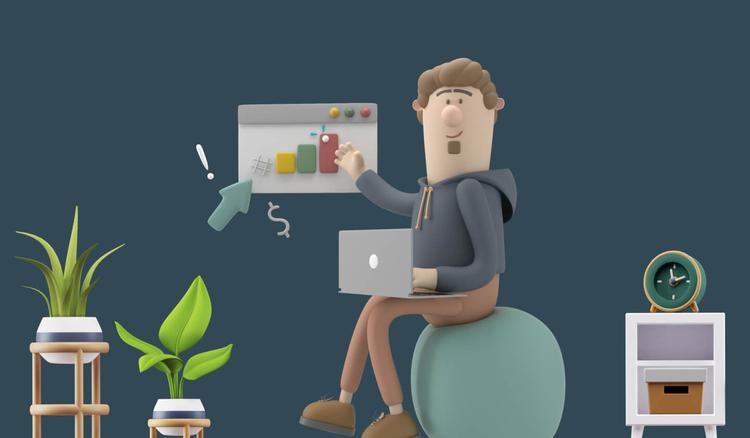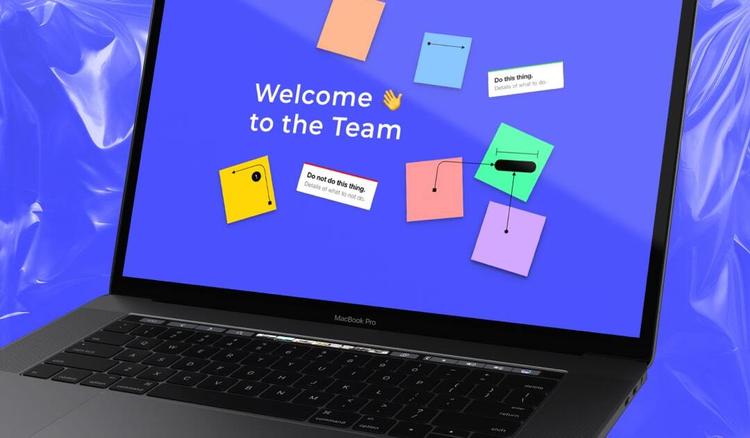While a brilliant app idea only lays the project foundation, it is the product development team that brings it to life as a tangible solution. A well-coordinated product team is like a ship crew – its work determines whether the app journey will be smooth or it will simply crash on the rocks.
Crafting an efficient team, along with defining clear product team roles and responsibilities, is crucial for startups to navigate the turbulent waters of a competitive app market.
In this article, we explore the essential ingredients that comprise a stellar product development team and shed light on how to build one to drive success in the ever-evolving startup ecosystem.
What is product development?
Before we start discussing the product development team structure and roles in detail, let's quickly recall what the development process is and what stages it is divided into.
The term “product development” refers to the process of creating and refining new software (or improving existing one) to meet the needs of the target market.
This process includes the following stages:
- Ideation
- Market research
- Design
- Production
- Testing
- Launch
- Post-release support
1. Ideation
This stage focuses on generating and exploring ideas for new products or product improvements. Using a roadmap slide can be beneficial to outline and communicate the development path and key milestones during this stage.
Needed specialists: Product manager, product owner, business analyst
2. Market research
Extensive mobile app research is conducted to study competitors, understand customer preferences, identify market trends, and assess the potential success of the product.
Needed specialists: Product manager, business analyst, marketing manager
3. Design
It involves translating the concept into a visualized version by creating detailed specifications, determining the product's features and screens, and designing the user experience.
Needed specialists: Product manager, designers
4. Production
Once the design prototype is finalized, developers proceed with building the app. At this point, they start coding and ensuring an efficient architecture to deliver the product at scale. A well-structured software development plan is essential during this phase, as it outlines the project timeline, resource allocation, and key milestones, ensuring that the development process is organized and aligned with the overall goals.
Needed specialists: Project manager, software developer
How long does it take to develop an app?
Read article5. Testing
Through product testing, the early app version is evaluated for functionality, performance, usability, and overall user experience to ensure it meets the desired quality standards and customer expectations.
Needed specialists: Project manager, QA testers, product owner
6. Launch
The product is introduced to the market, accompanied by marketing and promotional activities using bulk email services to create awareness and generate demand. Additionally, an online poster creator can be employed to craft visually appealing promotional materials, enhancing the overall effectiveness of the marketing campaign.
Needed specialists: Product manager, product owner, marketing manager
Soft launch VS hard launch
Read article7. Post-release support
Even after the app launch, continuous feedback from customers drives ongoing improvements. This allows the app to evolve and stay relevant in a competitive landscape.
Needed specialists: Product manager, business analyst, QA testers, software developers
Product development team goals
The most evident answer to the question “What is the goal of a product team?” is supporting the entire development cycle to release the app to the market. And that’s totally true. In today's data-driven environment, startup management with data science has become essential for building effective product development teams and making informed business decisions.
But let's dig deeper and define three more goals that will determine the qualities that you should pay attention to when hiring specialists.
Goal 1: Fostering innovation and creativity
In a startup setting, it’s essential to be able to generate fresh ideas, explore unconventional approaches, and push the boundaries of what is possible. By encouraging a culture of innovation, the team aims to develop products that disrupt the market, offer unique value propositions, and differentiate the startup from its competitors. Part of fostering a culture of innovation includes the initiative to benchmark companies known for their disruptive products, allowing the team to draw inspiration and identify opportunities for differentiation.
Obligatory skills: creativity, ability to think out of the box
Goal 2: Achieving speed to the market
It's no secret that a startup is a fast-paced ecosystem so time is of the essence. Your product development team should strive to bring apps to market in a timely manner as it defines a competitive advantage. The focus on streamlining the digital product development process, eliminating unnecessary bottlenecks, and optimizing workflows is a priority. Additionally, using a employee time clock app helps maximize productivity by streamlining workflow processes.
Obligatory skills: time management, knowledge of agile methodologies, cross-functional collaboration
Goal 3: Focusing on customer satisfaction
The ultimate goal of any product team is to create apps that drive satisfaction. The product development team places a strong emphasis on understanding user needs, preferences, and pain points through market research, user feedback, and data analysis. By adopting a user-centric approach, the team aims to build products that exceed customer expectations, foster loyalty, and contribute to the startup's growth. Plus, by using Playwright for data extraction, the team can gather comprehensive data insights from various web sources to inform their strategies.
Obligatory skills: analytical skills
Product team roles
So who makes up a dream product development team? What specialists will you need to look for in order to build and launch an application? Let's outline who they are:
Product Manager
The product manager is responsible for the overall strategy, vision, and success of the product. They define product requirements, prioritize features, and ensure that the development aligns with business goals. Product managers also conduct market research during the discovery phase, perform customer feedback analysis, and make data-driven decisions to guide the app’s direction.
Product Owner
The product owner is an indispensable expert within agile development methodologies. In startup software development, their role becomes even more critical, they bridge the gap between fast-changing business goals and the technical execution needed to achieve them. They work closely with product managers to define the product backlog, which contains a list of features, enhancements, and bug fixes. They also ensure that the development team understands user stories and provides clarifications when needed. With effective product operations management, the product owner also ensures that resources are optimally allocated, enabling the team to deliver high-quality features on time and within scope.
Project Manager
The project manager oversees the product development process, ensuring that it stays on track, meets deadlines, and adheres to the defined scope and budget. They are coordinators who set the product roadmap, communicate progress, and resolve any obstacles or conflicts during the process. They work closely with the development team keeping everyone motivated and on the same page. If you're considering hiring a project manager for your product development team, using a project manager test can make the process much easier.
How to find a CTO for your startup?
Read articleBusiness analyst
A business analyst is a professional who analyzes an organization's business operations, systems, and objectives to identify areas for improvement and recommend solutions. They play a crucial role in identifying opportunities for efficiency, cost reduction, and revenue growth. Translating business requirements into functional specifications, they work closely with development teams to ensure successful project implementation.
Designer(s)
Designers focus on creating an eye-pleasing and user-friendly experience for the app's target audience. They collaborate with the product manager to understand user needs, conduct user research, and develop wireframes, prototypes, and visual designs. You may hire a UX designer, responsible for the overall experience and usability, and a UI designer, focusing on the visual aspects, separately. Or you can find a universal UX/UI designer who combines both roles.
Software developers
Software engineers turn the product's design and specifications into a functional digital solution. They possess technical expertise in programming languages, frameworks, and development methodologies. Working side by side with the product manager and UX/UI designer, they provide front-end development services, write code and implement the required features. Plus, developers participate in testing, debugging, and resolving technical issues to ensure the app functions smoothly.
QA testers
These experts make sure that your app’s quality is not a mess. Testers create and execute test plans, identify issues, and suggest improvements. They conduct various types of testing, including functional, usability, performance, and security testing, among others, to validate the product's flawless functionality and user experience. Security testing may also involve using SAST and DAST tools to detect vulnerabilities in both the codebase and runtime environment.
Marketing manager
When it comes to promoting the app before and after the launch, marketing managers are here to save the day with a well-thought marketing strategy. They collaborate with the product manager to understand the target market, identify key customer segments, and develop effective marketing campaigns. Leading creative teams, they help to develop advertising materials, manage digital marketing initiatives, and measure the effectiveness of marketing efforts. Additionally, building a robust customer feedback strategy is essential to gather insights, refine marketing tactics, and enhance user satisfaction, ensuring continuous improvement and engagement with the app.
Product development team structure
We bet that after reading the long list of product team roles you are tormented by the question of how to group the team so that everyone is in their place. Don't worry, we won't leave this matter unexplained.
In this section, we’ll describe the most popular approach to the product development team structure: functional team VS cross-functional team.
Functional team
Functional teams are organized based on specific functions within the product development process. Each team works under a functional manager and focuses on their specialized area of expertise, such as design, engineering, marketing, quality assurance, and others. This approach allows team members to develop deep knowledge in their respective fields. Such a structure is typical for large companies. Strong team building within this structure helps improve collaboration between departments, ensuring smoother handoffs and better alignment on project goals.
Cross-functional team
A cross-functional structure brings together individuals from different fields into a single team, breaking down functional barriers. This approach fosters the core drivers of employee engagement, such as collaboration, communication, and shared responsibility. Engaging representatives from various divisions encourages a multifaceted approach to product development.
In fact, cross-functional teams are more frequent for startups due to their agility and flexibility. If you’re a startup making initial steps on the market, it’s unlikely that you need a large staff with multiple teams, right? As such, bringing together individuals with diverse skill sets is a win-win solution that promotes faster decision-making and maximization of limited resources.
How to build a great product team?
Assembling a product development team for a startup is quite a challenging process that requires time, patience, and determination. If you're ready to jump into the hiring process on your own, we've put together a few tips to help you consolidate a team to entrust your app development.
-
Define product team roles and skills
By specifying key competencies, technical expertise, and soft skills required for each role, you're narrowing down your search a lot. This clarity will guide your hiring process and help you target candidates with the right experience.
-
Foster a culture of collaboration
Encourage a collaborative culture where team members actively communicate, share ideas, and work together towards a common goal. You should encourage an environment where diverse perspectives and open dialogue are valued. How? Organize team meetings and brainstorming sessions! If these take place online, use AI tools for meeting notes to record the transcripts. You can also leverage internal communications digital signage software to display important updates, announcements, and team achievements in a visually engaging way, ensuring that everyone stays informed and connected.
-
Encourage continuous learning
Support the professional development of team members. Make sure that your startup provides professional training and the opportunity to attend industry events to be up-to-date with the latest trends. Moreover, implement a mentorship program to enhance knowledge sharing and career development within your team.This commitment to growth not only benefits team members individually but also enhances the overall capabilities of your product team.
-
Cultivate trust and comfort
In a startup, it’s vital that team members feel comfortable taking risks, sharing ideas, and expressing their opinions without fear of judgment or retribution. Encourage open and respectful communication, actively listen to team members' feedback, and value their contributions. By establishing trust, you create an atmosphere of creativity and effective problem-solving. This foundation also strengthens the impact of employee rewards and recognition, as team members are more likely to feel genuinely appreciated when trust and open communication are already in place.
How can SolveIt help your startup needs?
But what if you've already had unsuccessful attempts to put together such a team? Or you’re too tight on deadlines and need the product development team here and now? It’s fine, we understand that today’s market is extremely volatile and competitive. The good news is that SolveIt can free you from the hassle!
With our extensive network of skilled professionals, SolveIt specializes in hiring developers for startups. We can connect your startup with talented professionals up to your goals and requirements. SolveIt can provide you with the whole product development team, or specialists such as project managers, software engineers, testers, and designers, on your request.
How to hire a dedicated development team for your startup?
Read articlePlus, we take care of all the technical aspects, from choosing the most suitable technologies and tools to launching the ready-to-go product – whether you need to build an MVP or a full-scale app. This can greatly save time and effort in the hiring process, as we’ve already gathered the pool of trusted professionals who can quickly get involved and accelerate your journey toward success.
Summing up
We hope that after reading this article you have the complete picture of what a product team is and how to find the right specialists. By carefully considering the product development team structure, defining responsibilities, and fostering collaboration, startups can create an environment that promotes innovation and long-term growth.
If you don’t have the right team in place yet, SolveIt will be happy to assist. Contact us to discuss how we can help you build a robust team in the shortest time possible.


![How you make your software projects fail [and tips to avoid this]](/_next/image?url=https%3A%2F%2Fsolveit.dev%2Frails%2Factive_storage%2Fblobs%2FeyJfcmFpbHMiOnsibWVzc2FnZSI6IkJBaHBBdmtFIiwiZXhwIjpudWxsLCJwdXIiOiJibG9iX2lkIn19--4b92db166ad68ff9a8e3f325277723d89d0c57f3%2Fcover2%2520Why%2520software%2520projects%2520fail-min.jpg&w=750&q=75)
